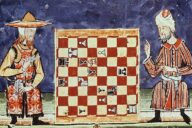In this text, excerpt from the book Islam and Constitutionalism: an open dialogue, edited by FUNCI, Nadirsyah Hosen, scholar specializing in Islamic rights, analyzes the values that should regulate all interpretations of Shari’a. These are the Maqasid al-Shari’a or objectives of the Islamic law. According to this author, as well as to many others, the law making process must be based on a set of principles that guarantees the protection of the individual, instead of being governed exclusively by literalist criteria.
 In relation to the protection of the rights of the citizen, despite some rights which are established in the the Qur’an and the Sunna,[1] maqasid al-shari’a (the objectives of Islamic law) should become another principle or criterion of Islamic constitutional law. This view is supported by UCLA Professor of Islamic Law, Khaled Abou El Fadl.[2] According to Muhammad Husein Kamali, maqasid al-shari’a is an important but neglected aspects in the discourse of the Shari’a. Kamali claims that even today many highly regarded textbooks on Usul al-Fiqh (Islamic legal theory) do not comprise maqasid al-shari’a in their descriptions. Generally those textbooks are more concerned with conformity to the letter of the divine text. Accordingly, this, directly or not, has contributed to the literalist direction of juristic thought.[3]
In relation to the protection of the rights of the citizen, despite some rights which are established in the the Qur’an and the Sunna,[1] maqasid al-shari’a (the objectives of Islamic law) should become another principle or criterion of Islamic constitutional law. This view is supported by UCLA Professor of Islamic Law, Khaled Abou El Fadl.[2] According to Muhammad Husein Kamali, maqasid al-shari’a is an important but neglected aspects in the discourse of the Shari’a. Kamali claims that even today many highly regarded textbooks on Usul al-Fiqh (Islamic legal theory) do not comprise maqasid al-shari’a in their descriptions. Generally those textbooks are more concerned with conformity to the letter of the divine text. Accordingly, this, directly or not, has contributed to the literalist direction of juristic thought.[3]
The maqasid al-shari’a consists of the five juristic core values of protection (al-dharuriya al-khams) for religion, life, intellect, honour or lineage, and property. Basically, the Shari’a, on the whole, seeks primarily to protect and promote these essential values, and validates all measures necessary for their preservation and advancement. El Fadl argues that the protection of religion would have to mean protecting the freedom of religious belief; the protection of life would mean that the taking of life must be for a just reason, and the result of a just process; the protection of the intellect would have to mean the right to freedom of thought, expression and belief; the protection of honour would have to mean the protection of the dignity of a human being; and the protection of property would ensure the right to compensation for the taking of property. [4]
Core Values
It is essential to note that these five core values are not divine, but human values, since they are developed by Muslim jurists based on their interpretations of the Qur’an and the Sunna. This could mean that the maqasid al-shari’a is not limited to the five core values. Ibn Taimiyah, for instance, departs from the notion of confining the maqasid al-shari’a to a specific number of values.[5] Yusuf al-Qaradawi takes a similar approach. He extends the list of the maqasid al-shari’a to include “human dignity, freedom, social welfare, and human fraternity among the higher maqasid of the Shari’a”.[6] The existence of additional objectives is upheld by the weight of both general and detailed evidence, in the Qur’an and the Sunna.
A new ijtihad could be performed by considering the theory of the maqasid al-shari’a, examining the Shari’a as a unity in which the detailed rules are to be read in the light of their broader premises, substantives, and objectives. This means that by looking at the maqasid al-shari’a, the Shari’a could be analysed beyond the particularities of the text. In Kamali’s words, “the focus is not so much on the words and sentences of the text, as on the purposes and goals that are being upheld and advocated”.[7] It is worth noting that the principles and the procedural form of Islamic constitutional law could be found through the theory of the maqasid al-shari’a.
* Nadirsyah Hosen is a Senior Lecturer at the University of Wollongong Law School, specializing in Shari’a and Indonesian Law.
Notes
[1] Many Muslim scholars are firm in their belief that Shari’a addresses the fundamentals of human rights. For instance, they identify the most important human rights principles in Islam to be: dignity and brotherhood; equality among members of the community without distinction on the basis of race, colour, or class; respect for the honour, reputation, and family of each individual; the right of each individual to be presumed innocent until proven guilty and individual freedom. See Tahir Mahmood (ed.), Human Rights in Islamic Law, New Delhi, Genuine Publications, 1993. This book compiles articles from leading Muslim scholars such as Abul A’la Maududi, M.I. Patwari, Majid Ali Khan, Sheikh Showkat Husain, and Parveen Shaukat Ali.
[2] El Fadl, above n 13.
[3] Mohammad Hashim Kamali, Principles of Islamic Jurisprudence, (Cambridge, The Islamic Text Society, 1991), 403.
[4] El Fadl, above n 13, 88; more discussion on this topic can be found in M. Sa’d b. Ahmad b. Mas’ud al-Alyubi, Maqasid al-Shari’a al-Islamiya wa ‘Alaqatuha bi Adillah al-Shar’iyya, (Riyad, Dar al-hijrah li al-Nasyr wa al-Tawzi’, 1998). This work is based on his PhD thesis at al-Jami’ah al-Islamiyah bi al-Madinah al-Munawarah, 1995.
[5] Taqi al-Din Ibn Taimiyah, Majmu’ al-Fatawa, Vol. 2, (Beirut, Mu’assasah al-Risalah, 1398 H), 134.
[6] As quoted in Kamali, above n 16, 407.
[7] Ibid., 408.















No Comments